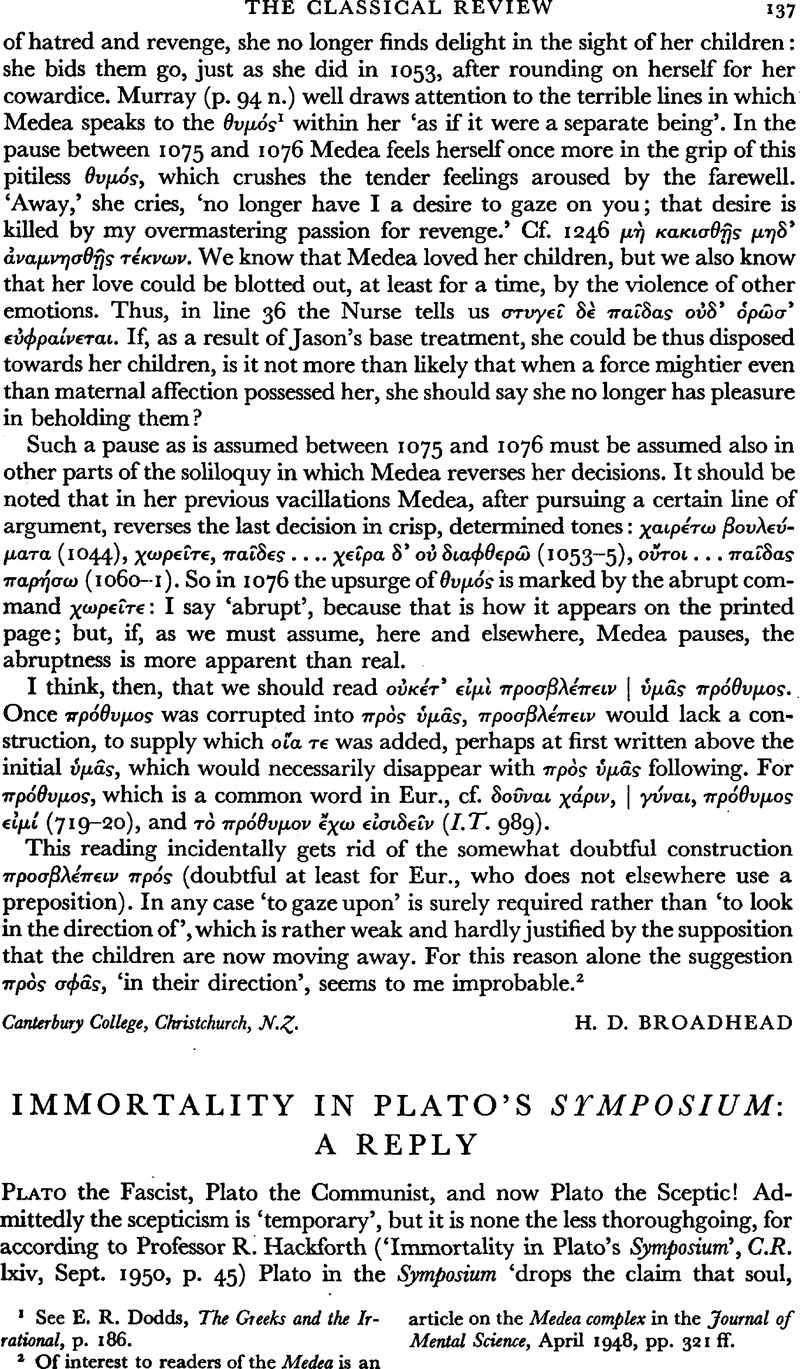Article contents
Immortality in Plato's Symposium: A Reply
Published online by Cambridge University Press: 13 February 2009
Abstract

- Type
- Review Article
- Information
- Copyright
- Copyright © The Classical Association 1952
References
page 138 note 1 Assuming here, and throughout, that the Phaedo was written before the Symposium. Hackforth says that it is impossible to decide which is the earlier, but later writes as though the Phaedo came first. In the five chronological lists of the Platonic dialogues cited by Ross, W. D., in his Plato's Theory of Ideas, p. 2, Wilamowitz is the only critic to place the Phaedo before the Symposium.Google Scholar
page 139 note 1 Cf. Bury, Symp. (ed. 2), p. xlv, n. 2: ‘In other words, ⋯θανασ⋯α may be used not simply of quantity but of quality of existence. This is probably the case in 212a: “immortality” is rather “eternal life” than “ever-lastingness”, as connoting “heavenliness” or the kind of life that is proper to divinities’.
page 139 note 2 There is, perhaps, some slight confirmation for this thesis in Plato's use of the comparative ⋯θανατώτερος in 209 c 7.
page 139 note 3 Cf. Plato, Epinomis 982 a 2: μακρα⋯ωνα β⋯ον … ζω⋯ς said of the heavenly bodies.
page 140 note 1 These references in Bury loc. cit., p. xliv. n. 2.
- 6
- Cited by


